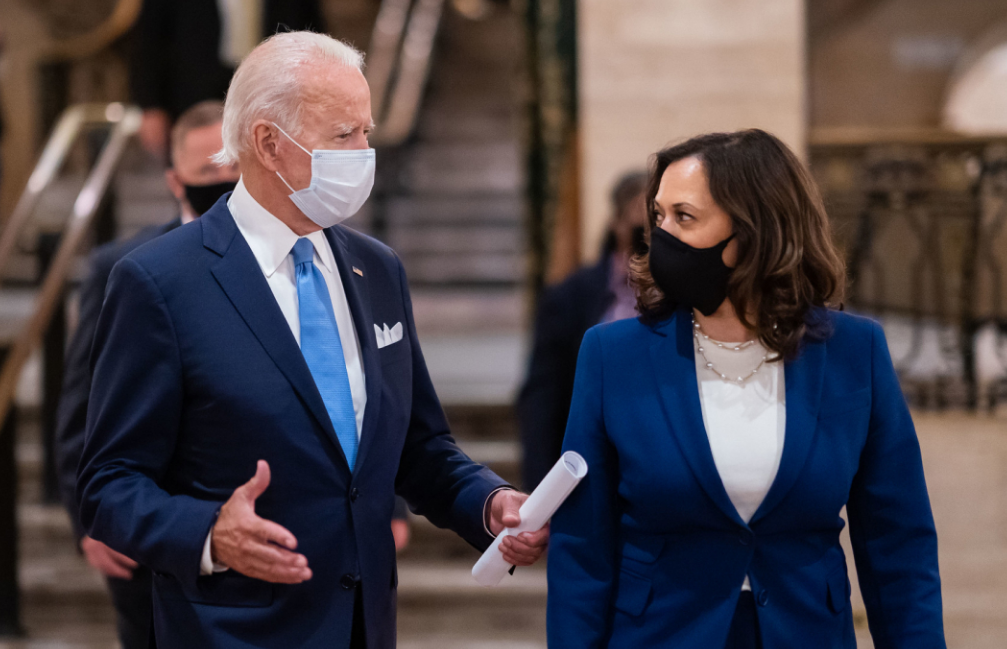
- Details
- By Jenna Kunze
In his first week in office, President Joe Biden appointed three Indigenous members to his roster, including attorneys Robert Anderson (Boise Forte Band of the Minnesota Chippewa Tribe) and Ann Marie Bledsoe Downes (Winnebago Tribe of Nebraska) to the Interior Department, and Wahleah Johns (Navajo) to head the U.S. Office of Indian Energy Programs and Policy.
The Interior Department, slated to be led by first Native American cabinet member and New Mexico Congressman Deb Haaland, announced the bids on Jan. 20, the day Biden and Vice President Kamala Harris took office.
Anderson will serve as principal deputy solicitor, meaning he will advise the Interior Secretary on legal counsel for cases involving the federal government. The Chippewa Tribal member is a professor at Harvard Law School, where he has worked for over a decade. Prior to that, he taught law at University of Washington School of Law and directed its Native American Law Center. Anderson began his career as a staff attorney for the Native American Rights Fund, and previously served as the Association Solicitor for Indian Affairs and Counselor to the Secretary under Interior Secretary for the Clinton Administration, Bruce Babbitt.
Bledsoe Downes was appointed as Deputy Solicitor for Indian Affairs. She currently serves as the executive vice president of community impact and engagement at Ho-Chunk Inc. Simultaneously, Bledsoe Downes is a professor at the Sandra Day O’Connor College of Law at Arizona State University, where she also serves as Director of the Indian Gaming and Tribal Self-Governance Programs. Prior to that, she served as Deputy Assistant Secretary for Policy and Economic Development for Indian Affairs at the U.S. Department of the Interior, and as Interim Director of the Bureau of Indian Education.
Neither Anderson nor Bledsoe Downes could be reached for comment before press time.
Biden also tapped Navajo member Wahleah Johns to head the U.S. Office of Indian Energy Programs and Policy. As part of her role, Wahleah will promote Indian tribal energy development and efficiency, reduce Indian tribal energy costs and strengthen Indian tribal energy infrastructure, according to the department’s website.
Wahleah Johns is co-founder and director of Native Renewables, a company that brings solar energies to Native communities.
“I feel honored for my nomination to serve in the Biden-Harris administration as the Director of Indian Energy at DOE,” Johns wrote on Twitter over the weekend. “As the original caretakers of this land, I believe Tribes can lead the way to solving our climate crisis and building a regenerative and clean energy future.”
In another historic pick, Biden assigned Navajo Nation’s Dr. Jill Jim to join the administration’s COVID-19 Advisory Board.
Jim serves as the executive director of the Navajo Department of Health. She holds a doctorate in Public Health, a Master’s degree in Health Care Administration and a second Master’s in Public Health from the University of Utah. Her work has included: consulting for Navajo Area Indian Health Service, and epidemiology for the Utah Department of Health.
Jim was not available for comment before press time.
According to the administration’s press release, more than 80 percent of first day appointees were people of color, adhering to “the Biden-Harris commitment to diversity.”
More Stories Like This
Native News Weekly (August 25, 2024): D.C. BriefsUS Presidents in Their Own Words Concerning American Indians
The Stories That Started to Define Cultivating Culture in 2025
Breaking: Ben Nighthorse Campbell, Cheyenne Leader and Former U.S. Senator, Walks On
Zuni Youth Enrichment Project Joins 10th National Farm to Cafeteria Conference, Strengthens Partnerships for 2026 Food Sovereignty Work
Help us defend tribal sovereignty.
At Native News Online, our mission is rooted in telling the stories that strengthen sovereignty and uplift Indigenous voices — not just at year’s end, but every single day.
Because of your generosity last year, we were able to keep our reporters on the ground in tribal communities, at national gatherings and in the halls of Congress — covering the issues that matter most to Indian Country: sovereignty, culture, education, health and economic opportunity.
That support sustained us through a tough year in 2025. Now, as we look to the year ahead, we need your help right now to ensure warrior journalism remains strong — reporting that defends tribal sovereignty, amplifies Native truth, and holds power accountable.
 The stakes couldn't be higher. Your support keeps Native voices heard, Native stories told and Native sovereignty defended.
The stakes couldn't be higher. Your support keeps Native voices heard, Native stories told and Native sovereignty defended.
Stand with Warrior Journalism today.
Levi Rickert (Potawatomi), Editor & Publisher

